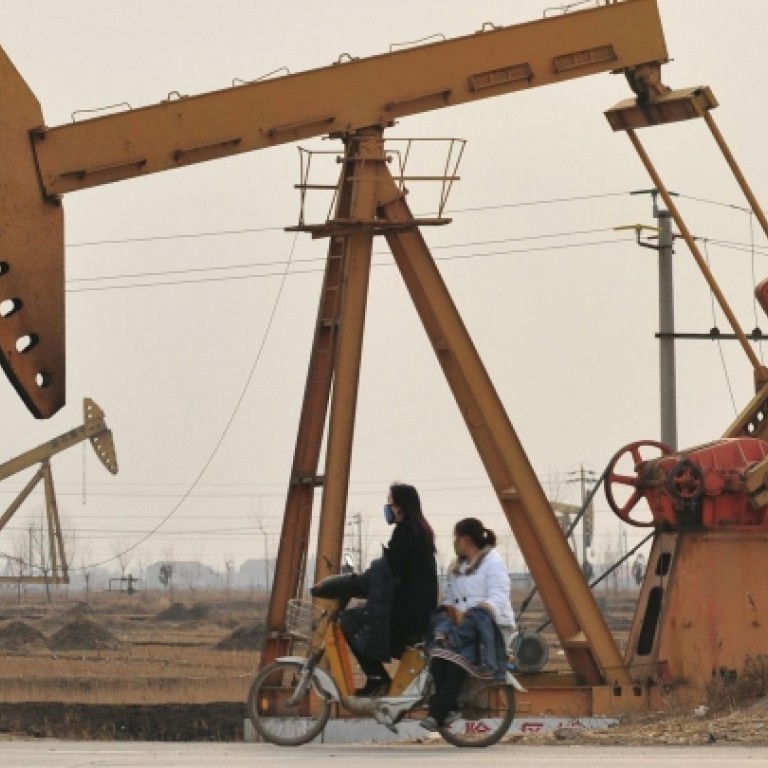
Commodities super-cycle is 'taking a break'
Runaway prices in commodities markets have ended, but long-term demand for commodities on the mainland is strong
The commodities "super-cycle", largely buoyed by Chinese buying, may have ended in terms of runaway prices but robust demand is expected to continue.
A more benign price outlook would benefit large commodities consumers and importers like China as it would help contain inflation and promote economic growth.
Eugen Weinberg, head of commodity research at Commerzbank in Germany, said: "Price movements in the market indicate an end to the commodities super-cycle. But we do not believe the super-cycle is coming to an end. It's just taking a break.
"Some 20 million people a year move from the countryside to the cities, triggering a huge demand for better infrastructure."
Michael Haigh, global head of commodities research at the French bank Societe Generale, said: "We do not think the current commodity super-cycle is over, but it is not as super. It is common to have cycles within super-cycles."
We do not think the current commodity super-cycle is over, but it is not as super. It is common to have cycles within super-cycles
The super-cycle that began around 2002 was driven by a combination of strong demand from emerging nations and low supply growth. Since last year, growth in global demand has weakened as a result of the sovereign debt crisis in many developed nations, while new supply caught up with demand because of strong investment during the latter years of the boom.
Mark Pervan, global head of commodity strategy at Australia & New Zealand Banking Group, said commodity prices peaked in the current cycle in early 2011.
Prices at the time were pushed up by infrastructure-led investments sanctioned by Beijing and global easing in monetary policies, to counter the impact of the global financial crisis in 2008-09.
With new leaders in Beijing shifting their attention from quantity-focused to quality development, lower growth is being tolerated, resulting in slower demand growth for energy and metals.
A research report by Deutsche Bank said: "China's domestic structural changes in the coming decade will likely be a negative for the global energy price outlook. As the super-cycle [of commodities prices] ends, there will likely be a considerable tapering of wealth transfer from commodity producers to importers."
It said that new technologies deployed in North America to extract previously uneconomic oil and gas will be used in other parts of the world, adding to future supply, while the growing competitiveness of clean renewable energy will cut demand for more polluting coal.
The mainland last year accounted for 11.7 per cent of the world's crude oil consumption, 50 per cent of coal, 46 per cent of aluminium, 40 per cent of copper and 46 per cent of iron ore.
The slowdown has seen the mainland's growth in demand for petrol slow to 3.3 per cent last year from 11.4 per cent in 2010, that of base petrochemical ethylene to 2.7 per cent from 11.8 per cent, and that of coal to 5.6 per cent from 9.8 per cent.
The picture in base metals consumption was similar, with the growth of aluminium slowing to 10 per cent from 19.5 per cent and that of iron ore to 4.7 per cent from 9.8 per cent.
Imports account for 60 per cent of its crude oil and unrefined copper needs, against 70 per cent for iron ore, 7 per cent for coal and 33 per cent for bauxite, the raw material for aluminium.
International prices of five energy and metal commodities peaked between February and May of 2011. Since their respective peaks, the Brent crude oil benchmark has fallen 15 per cent, coal 42 per cent, copper 33 per cent, aluminium 37 per cent and iron ore 36 per cent.
The declines, which brought prices of coal and aluminium to levels seen during the global financial crisis, were a result of over-reaction to China's slowdown, Pervan said.
Greater participation of investors in the commodities market has also caused higher price volatility, he said, adding that some 30 per cent of trading is attributable to investors, against 5 to 10 per cent before the current super-cycle.
"I think everybody accepts that China's long-term commodity demand outlook is still strong, but right now people are focusing on what is going to happen to the Chinese economy in the next 12 months," Pervan said.

